All Formats & Editions
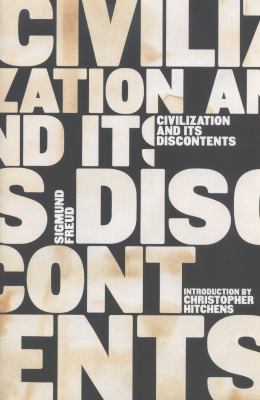
Civilization and Its Discontents
Written in the decade before Freud's death, Civilization and Its Discontents may be his most famous and most brilliant work. It has been praised, dissected, lambasted, interpreted, and reinterpreted. Originally published in 1930, it seeks to answer several questions fundamental...
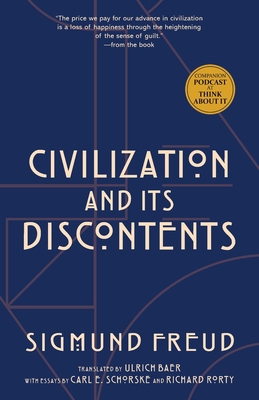
Civilization and Its Discontents (Warbler Class...

Civilization and its Discontents
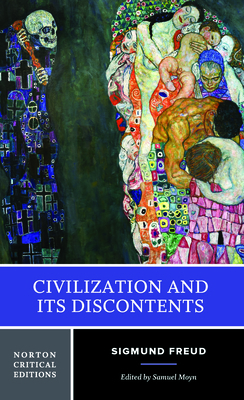
Civilization and Its Discontents: A Norton Crit...
This Norton Critical Edition includes: The Standard Edition of Sigmund Freud's most famous work, under the general editorship of James Strachey and authorized by Freud. Editorial matter by Samuel Moyn. Carefully chosen and thematically organized commentaries, including letters...
![El Malestar En La Cultura [Paperback] [Spanish] 8420612804 Book Cover](https://i.thriftbooks.com/api/imagehandler/l/736B4A5FB39B3DCA0234DBD5F197C6E7E2A7C4E9.jpeg)
El Malestar En La Cultura [Paperback] [Spanish]
![EL MALESTAR EN LA CULTURA (Spanish Edition) [Spanish] 1532827121 Book Cover](https://i.thriftbooks.com/api/imagehandler/l/E9FAFBE450D79340B53FD00979DE3FEB77784783.jpeg)
EL MALESTAR EN LA CULTURA (Spanish Edition) [Spanish]
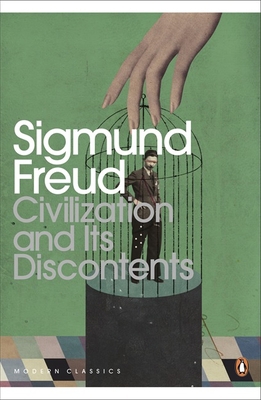
Modern Classics Civilization and Its Discontent

Civilization and Its Discontents
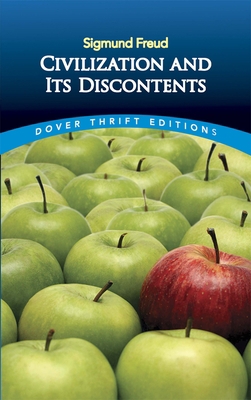
Civilization and Its Discontents
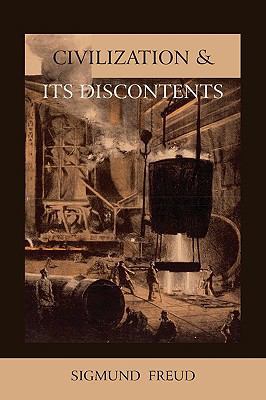
Civilization and Its Discontents
![El Malestar En La Cultura [Spanish] 8418395281 Book Cover](https://i.thriftbooks.com/api/imagehandler/l/3D58BE8052C34614A6DF78E045B9FA12F13E36B3.jpeg)
El Malestar En La Cultura [Spanish]
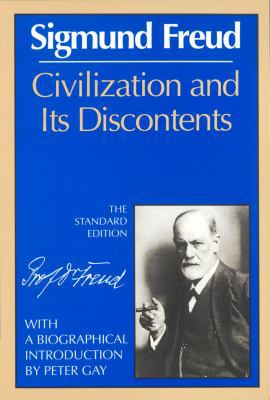
Civilization and Its Discontents
Civilization and Its Discontents is one of the last of Freud's books, written in the decade before his death and first published in German in 1929. In it he states his views on the broad question of man's place in the world, a place Freud defines in terms of ceaseless conflict...
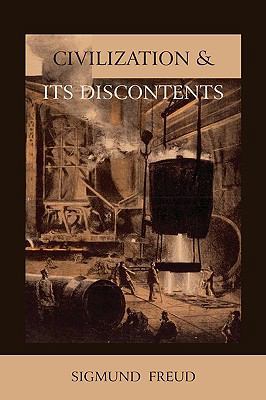
Civilization and Its Discontents
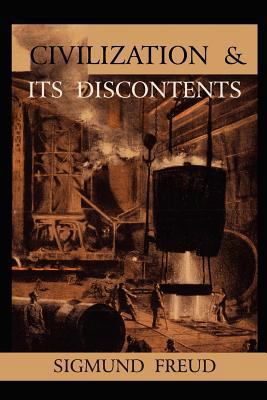
Civilization and Its Discontents
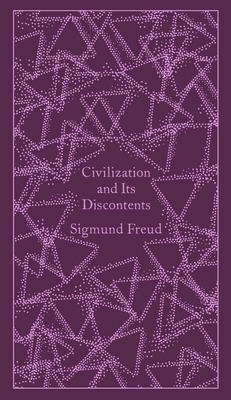
Civilization and Its Discontents
Freud's epoch-making insights revolutionized our perception of who we are, forming the foundation for psychoanalysis. In Civilization and its Discontents he considers the incompatibility of civilization and individual happiness. Focusing on what he perceives to be one...
![El malestar en la cultura [Spanish] 148250054X Book Cover](https://i.thriftbooks.com/api/imagehandler/l/69B4FD2FA4DBE8B55E5C8918E9B9D8815BE66D27.jpeg)
El malestar en la cultura [Spanish]
El malestar en la cultura es un extenso ensayo de Sigmund Freud que, junto con Psicolog a de las masas y an lisis del yo, se reconoce entre las obras m s relevantes de Freud en el rea de la psicolog a social y se considera uno de los textos cr ticos m s influyentes del siglo...
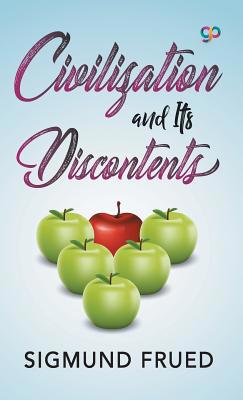
Civilization and Its Discontents
Civilization and Its Discontents' is one of the last of Freud's books, written in the decade before his death and first published in German in 1929. It is considered his most brilliant work. In it he states his views on the broad question of man's place in the world. It seeks...
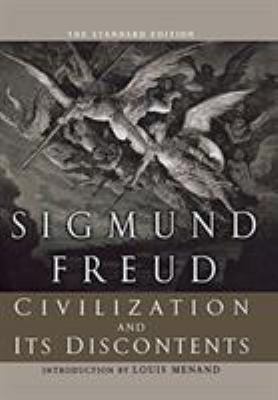
Civilization and Its Discontents (The Standard)
Civilization and Its Discontents may be Sigmund Freud's best-known work. Originally published in 1930, it seeks to answer ultimate questions: What influences led to the creation of civilization? How did it come to be? What determines its course? In this seminal volume of twentieth-century...
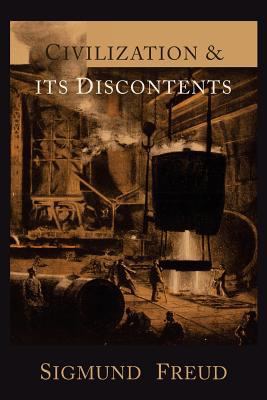
Civilization and Its Discontents
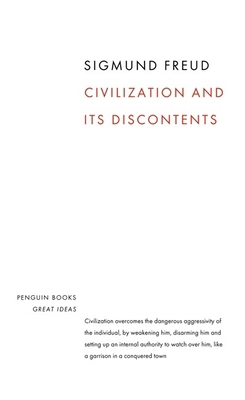
Great Ideas Civilization and Its Discontents
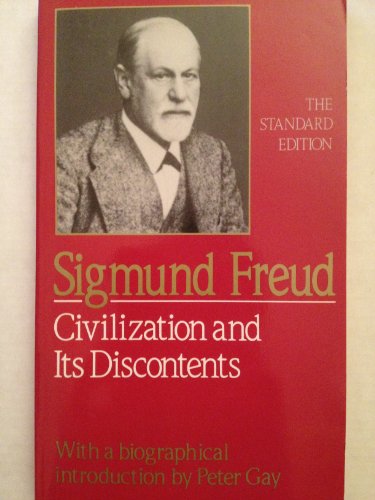
Civilization and Its Discontents Publisher: W. ...
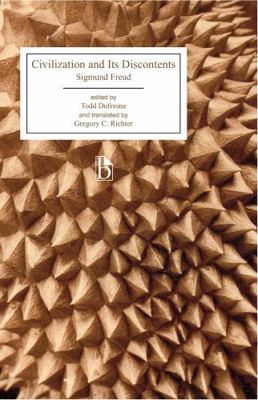
Civilization and Its Discontents
In Civilization and Its DiscontentsFreud extends and clarifies his analysis of religion; analyzes human unhappiness in contemporary civilization; ratifies the critical importance of the death drive theory; and contemplates the significance of guilt and conscience in everyday...
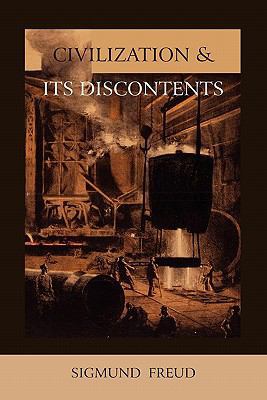
Civilization and Its Discontents

Civilization and Its Discontents




